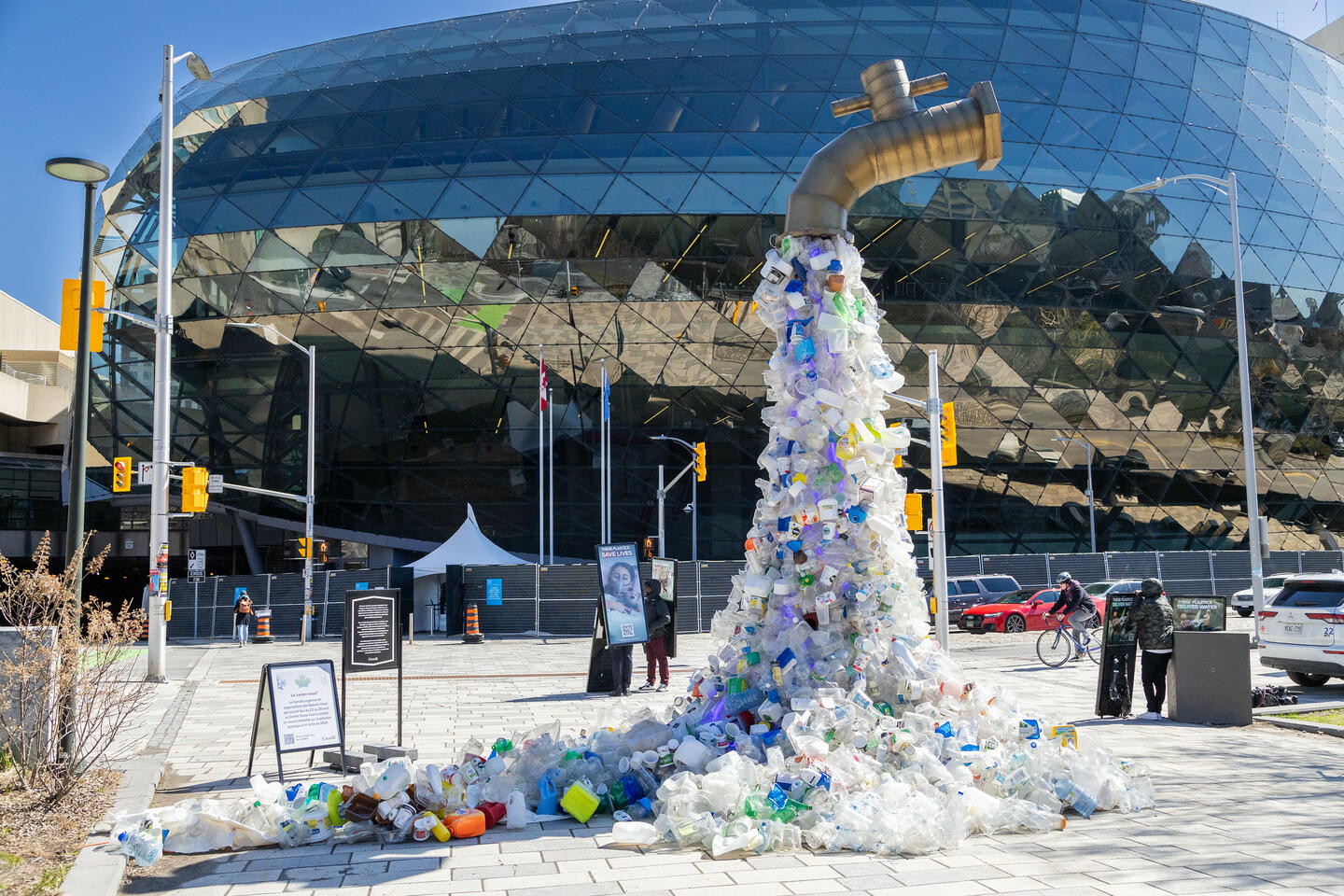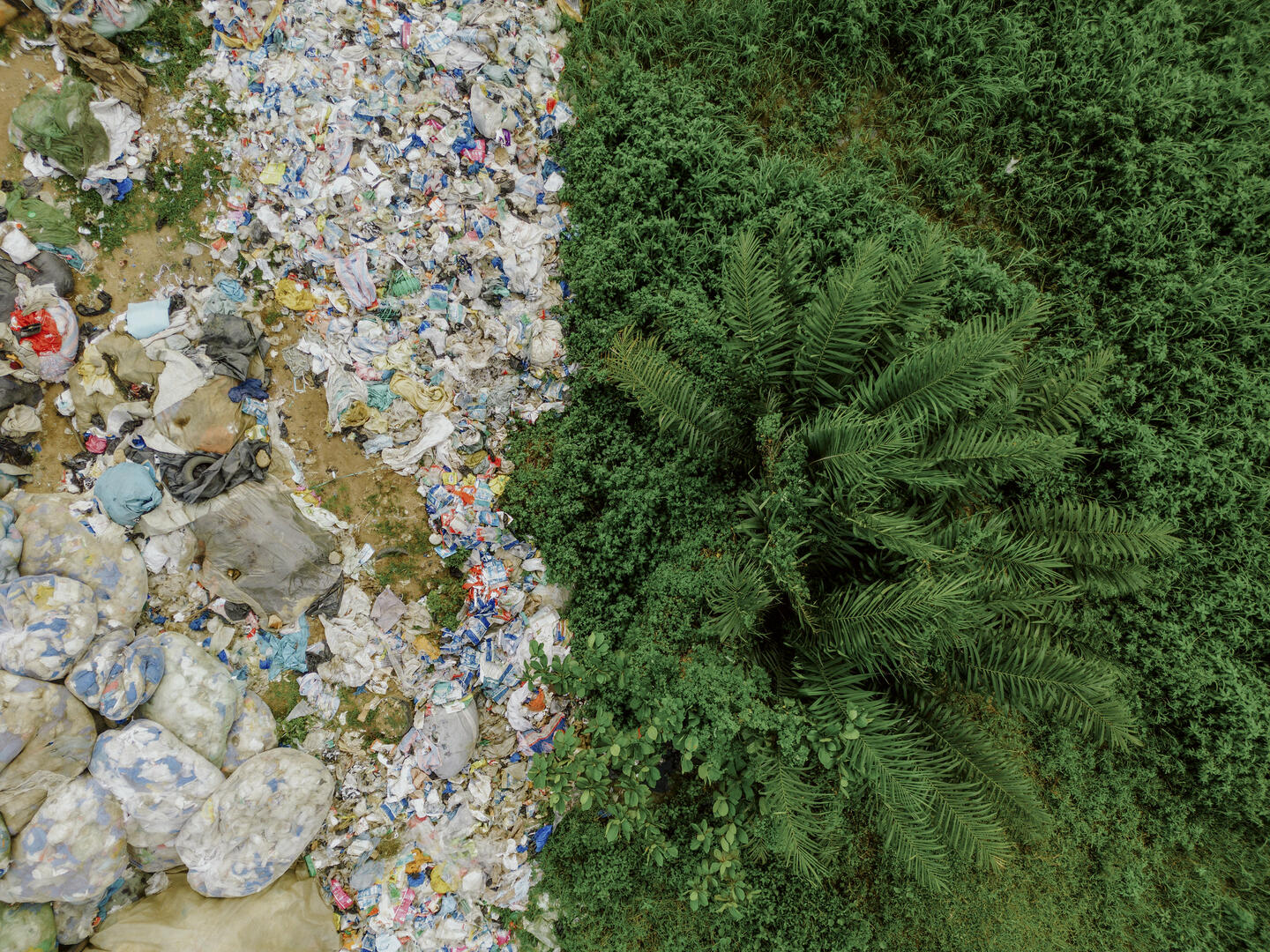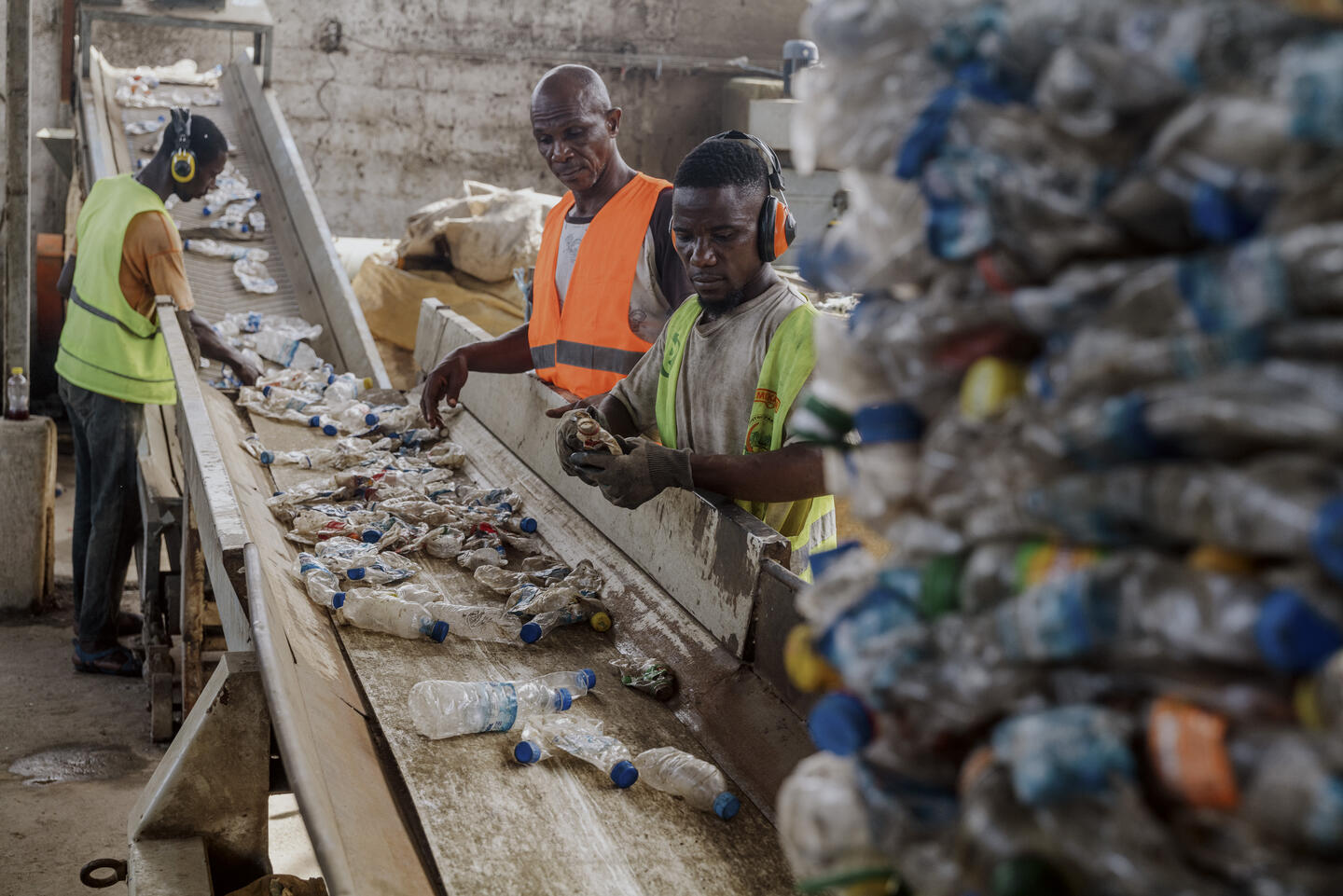
An instrument on plastic pollution is imminent. Small businesses can benefit if they act now.
For companies that produce, use, and distribute plastics, change is coming. After two years of negotiations, a legally binding instrument to end plastic pollution is expected to be finalized in Busan, the Republic of Korea, at the end of 2024, for adoption next year.
By focusing on plastic pollution, the instrument will protect human health and the environment, while creating new market opportunities and ensuring a just transition for waste-pickers, other workers and micro, small, and medium-sized enterprises.

The deal must target the full life cycle: reduce the production of raw polymer for unnecessary, single-use and short-lived plastics; design for safe use and circularity; and use, reuse and recycle resources more efficiently.
As a result, we can expect markets for virgin materials in single-use and short-lived plastics to change, including for plastic packaging. There will be regulatory changes. We can expect to see initial short-term costs. However, the long-term benefits will outweigh short-term disruption.
There will be growing markets and employment. Increased demand for commodities and packaging designed differently, such as solid shampoo bars. Commodities delivered to the customer differently, such as through reuse and refill systems. Increased availability of recycled materials for new products. And, crucially, increased investment in the transition.
In fact, in April this year, over 160 financial institutions, with $15.5 trillion in combined assets, called for an instrument that they would support by taking financial decisions in favour of a sustainable, safe, just, resource-efficient, and circular economy.

As these investors pointed out, the instrument must create the right business environment, so that practices that reward pollution and the inefficient use of resources are outcompeted by efficient and non-polluting solutions.
As plastic products are traded internationally – connecting international value chains, consumers and producers – regulatory approaches need to align internationally. This can happen through, for example, common design guidelines, including on harmful chemicals in products, legislation on reuse and refill systems and fostering collective action.
The instrument should create opportunities for those small businesses tackling plastic pollution to access finance. Setting market-specific targets for reuse and refill can also generate confidence for financial actors to support the shift.
Providing guidance and minimum criteria to ensure the private sector participates in Extended Producer Responsibility schemes would also be critical.

Small businesses that contribute to the transition – particularly those involved in reuse and refill systems, product delivery models, safe, alternative materials and waste management and recycling – will benefit from the instrument. Those enterprises that start shifting practices now stand to gain the most.
Small businesses are already leading the way in reuse and refill packaging systems. One great example is Chile’s Algramo, a social enterprise providing refill services that reduce plastic pollution and lower the costs of everyday essentials. Their work is so impactful that UNEP made the company’s founder a Champion of the Earth in 2023.
Small businesses are also developing innovative packaging applications or replacing plastic that is single use and short lived with other materials. We need to see further innovation in many areas: disposable food and drink containers, fruit and vegetable delivery, pallet shipping and products themselves.
As the instrument will increase access to affordable and better-quality recycled feedstock, small businesses can start planning to modify their processes to accept these materials.
Waste management, a sector dominated by small businesses, will be a huge opportunity, as there will need to be massive investment to ensure that plastics that remain in the system are collected, sorted, and put back into the value chain.
The bottom line is that the linear plastics economy is ending. Those companies that provide new solutions and innovative business models, adopt safe alternatives or substitutes, or develop products and applications that are non-polluting will be the first to benefit from what comes next.





